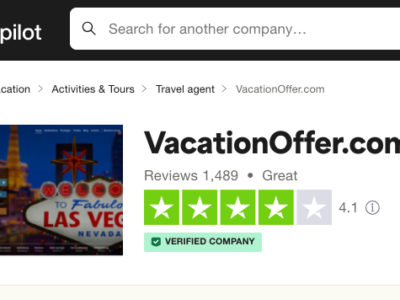Wealth management, once confined to traditional face-to-face interactions, is undergoing a profound transformation in the digital age. As industries across the spectrum embrace digitalization, wealth management is no exception.
With a new generation of tech-savvy investors seeking efficient, accessible, and cost-effective financial solutions, the pressure is on wealth managers to adapt and thrive in this rapidly changing landscape.
The New Era of Wealth Management
The emergence of digital wealth clients is reshaping the wealth management landscape. These clients demand personalized, hassle-free experiences that combine data-driven robo-investing with expert human guidance, available across multiple channels and at any time.
This growing demand for convenience and accessibility challenges the traditional wealth management model.
The Stakes for Fintech Firms
The rewards for fintech firms that embrace digitalization are substantial, with the sector experiencing explosive growth. Conversely, firms that lag in offering digital solutions risk losing business.
A staggering 77% of firms in the US and Canada have reported losing clients due to inadequate digital offerings.
To remain competitive, wealth management firms must fuse their legacy services with cutting-edge digital tools.
Maximizing Digital Wealth Management: Strategies for Success

- Understanding Digital Wealth Management: To stay ahead, it’s crucial to comprehend what digital wealth management truly entails. This paradigm shift involves leveraging AI, automation, and computing power to make investing more accessible, affordable, and efficient. By adopting a digital approach, advisors can create a seamless user experience that empowers clients to educate themselves and grow their wealth.
- Hybrid Solutions: The integration of technology and human expertise is key. Imagine a scenario where clients are onboarded through a user-friendly app. They input their data, share documents, and engage with advisors online. This approach blends robo-advisors and personalized video conferences, offering a comprehensive experience that leverages AI to analyze customer data for tailored investment strategies.
- Empowering AI for Personalization: AI’s capabilities extend beyond automation. By analyzing client data, AI can craft investment portfolios that align with individual goals and risk preferences. This data-driven approach mitigates human bias and emotional decisions, ensuring a rational investment strategy.
- Risk Monitoring: Investment inherently carries risk. However, AI-driven risk monitoring ensures these risks are balanced with potential rewards and aligned with the investor’s risk tolerance. The result is a portfolio that reflects the client’s financial profile, minimizing potential losses.
- Operational Efficiency: Digital wealth management centralizes all financial processes, eliminating redundancy and increasing efficiency. Whether through blockchain technology or native cloud solutions, this streamlining allows advisors to focus on more substantial strategies for wealth growth.
- Client-Centric Approach: While digital, the approach remains personal. A comprehensive array of digital and human options ensures a client-centric experience. Meeting clients where they are and helping them identify and achieve their financial goals remains paramount.
- Omnichannel Engagement: Digitalization doesn’t imply a one-size-fits-all approach. Maintaining an omnichannel strategy caters to tech-savvy clients and those less comfortable with digital tools, ensuring engagement across different preferences.
- Automation for Value: The industry’s reliance on outdated paperwork and manual processes hinders progress. Automation tackles these obstacles head-on, freeing wealth advisors from administrative burdens to focus on delivering personalized growth strategies.
A Game-Changing Solution: Remote Online Notarization
In this digital era, even the once arduous process of verifying identity and documents has been streamlined.
Remote online notarization, provided by platforms like Notarize, enables secure identity verification and document notarization online, eliminating the need for time-consuming in-person appointments.
With a team of commissioned notaries available 24/7, financial transactions can be documented, verified, and secured in minutes.
The Digital Wealth Management Revolution: Staying Ahead in a Rapidly Changing Landscape
The traditional face-to-face wealth management model is undergoing a seismic shift in the digital age. No longer confined to physical meetings and paperwork, wealth management is embracing technology to cater to the demands of a new generation of investors.
As the digitalization wave sweeps across industries, wealth management is at a critical juncture – adapt or risk becoming obsolete.
The Rise of the Digital Wealth Client
The emergence of a younger, tech-savvy clientele has catalyzed the transformation of wealth management. This new breed of investors seeks streamlined, cost-effective, and user-friendly financial services.
They want the best of both worlds – the data-driven efficiency of robo-investing combined with the personalized touch of human expertise, all available through various digital channels, 24/7.
The Dichotomy for Financial Firms
In a landscape where digitalization is rapidly reshaping industries, financial firms face a pivotal choice. Embrace the wave of change and harness the power of technology, or risk losing clients to more tech-savvy competitors.
An alarming 77% of firms in North America have reported losing business due to inadequate digital offerings.
The writing on the wall is clear – evolve or face the consequences.
Strategies for Thriving in the Digital Wealth Management Era

- Understanding the Digital Shift: Successful navigation of the digital realm begins with a solid understanding of what digital wealth management truly means. It involves leveraging artificial intelligence, automation, and sophisticated computing to provide clients with accessible, efficient, affordable investment solutions. This shift empowers clients to educate themselves and actively participate in growing their wealth.
- The Power of Integration: The future lies in integrating technology and human expertise. Picture a scenario where clients are seamlessly onboarded through an intuitive app. They can input their financial data, upload necessary documents, and converse virtually with advisors. Combining robo-advisors and personalized video interactions creates a holistic experience where AI analyzes data to craft bespoke investment strategies.
- AI-Driven Personalization: Beyond automation, AI’s true potential lies in personalization. By processing vast amounts of client data, AI can construct investment portfolios aligned with individual goals and risk appetites. This data-driven approach minimizes emotional biases and ensures a rational, calculated investment strategy.
- Balancing Risk with AI: Risk is an inherent part of investing, but digital wealth management offers a data-driven management approach. AI tools assess risk by analyzing a client’s financial landscape, ensuring portfolios reflect risk tolerance while maximizing potential rewards.
- Operational Excellence: The digital transition centralizes financial processes, eliminating redundancy and enhancing operational efficiency. Whether through blockchain technology or cloud-based solutions, this streamlining empowers advisors to focus on devising strategies for substantial wealth growth.
- Customer-Centric Philosophy: Despite the digital transformation, the core philosophy remains client-centric. A wide array of digital and human options ensures tailored experiences that meet clients where they are, assisting them in identifying and achieving their financial aspirations.
- Omnichannel Engagement: Recognizing that clients have varying comfort levels with digital tools, maintaining an omnichannel approach is crucial. This approach caters to tech enthusiasts and those more accustomed to traditional interactions, ensuring engagement across diverse preferences.
- Leveraging Automation for Value: The financial industry’s reliance on manual paperwork and processes has hindered progress. Embracing automation liberates wealth advisors from administrative burdens, allowing them to focus on delivering personalized strategies and cultivating client relationships.
Unlocking Seamless Transactions with Remote Online Notarization
Amidst the digital upheaval, remote online notarization emerges as a game-changer. With advances in digital technology and legal processes, identity verification and document notarization can now be seamlessly executed online.
Platforms like Notarize offer remote online notarization services, allowing clients to verify and notarize documents online, eliminating the need for time-consuming in-person appointments.
A team of commissioned notaries is available round the clock, ensuring transactions are documented, verified, and secured within minutes.
Conclusion: Navigating the Digital Future
As wealth management embraces digitalization, the industry is poised for transformation.
Embracing digital wealth management allows firms to provide personalized, cost-effective, and accessible solutions that cater to the evolving needs of modern investors.
Melding cutting-edge technology with human expertise, a new era of wealth management is born – one that democratizes financial services and empowers clients to participate in wealth growth actively.
In this evolving landscape, remote online notarization stands as a testament to the potential of digital tools in reshaping financial services, ensuring secure transactions, and enhancing the client experience.
The future of wealth management is digital – those who seize the opportunity to adapt will undoubtedly thrive in the digital era.
Discover more from Digital Wealth Guru
Subscribe to get the latest posts sent to your email.










Comments